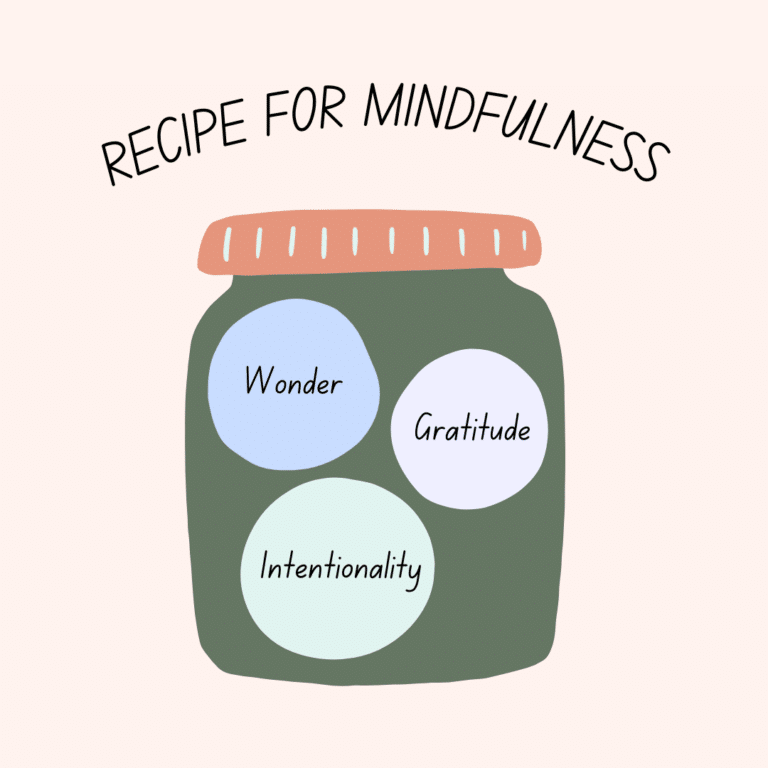
The first day of summer 2021 is right around the corner. Temperatures are rising, restrictions are lifting, we’re all ready to start settling back into post-pandemic ‘normalcy.’
At the same time, re-entering the world — even while fully vaccinated — can be nerve-wracking. After over a year of masks, limited gatherings, and physical distancing, it’s normal to be worried about going back to the way things were before. It’s also normal to be wondering, what did normal even look like?
As we slowly step into a reopened world this summer, Unpacked has collected some mindfulness strategies to keep in your back pocket.
Mindfulness can be defined as “the basic human ability to be fully present, aware of where we are and what we’re doing, and not overly reactive or overwhelmed by what’s going on around us.”
We’re all for hot girl summer, but even the hottest girls and boys get overwhelmed. Here are our tips to stay present and calm this summer.
The ‘Awe Method’: Seek Wonder
Mindfulness intersects with many concepts that are essential in Jewish daily life.
One is Yishuv Hadaas, which is often understood to mean tranquility and peace of mind.
The Gemara teaches that three things bring Yishuv Hadaas: pleasant and enjoyable sounds, sights and aromas.
That’s right, our own senses have an innate ability to calm us down.
In a recent study, researchers at UC Berkeley and Northbay Hospital found a method that activates the senses for mindfulness.
The ‘awe method’ is all about evoking a sense of awe: a feeling akin to wonder or surprise. It doesn’t require any special knowledge or tools. All you need to do is “turn your full and undivided attention on things you appreciate, value or find amazing,” pause for a full breath and then “exhale and expand” which will help you to amplify any emotions you’re feeling.
In essence, taking a moment to pause and appreciate the beauty in the little things.
Casual Magic: Practice Gratitude
Similar to the awe method, British influencer ‘UnJaded Jade’ uses a tactic to be more present and appreciative called “casual magic.”
“The idea is that everyday isn’t going to be your wedding day, not everyday is going to be the best day of your life,” she said in a Tik Tok. “But does that really mean you can’t find anything beautiful to enjoy the day?”
“Casual magic asks you to find something. Something tiny, something small, something beautiful in the mundane every day.”
@unjadedjade this habit changed my life. 🧚🏼♀️ #casualmagic #gratitude #maincharacter #howto
♬ Coming of Age – Blondes
What she is suggesting is something the Jewish tradition has instructed our people to do for millenia: practice gratitude.
Judaism is a project of Mindfulness. Brachot encourage us to take a moment of pause to engage in reflection and gratitude, according to Rabbi Avram Mlotek, a New York-based Orthodox rabbi.
“The first prayer that gets recited in the mornings is the Modeh Ani prayer. And the first word of that, even before you say ‘I’ is ‘grateful.’”
This summer, find one moment to take stock of the small things you have to be grateful for that day. It’s a simple practice that, when done regularly, can bring you serious joy and awareness in the long run.
Kavana: Be intentional
Kavana is a Hebrew term that can translate to ‘intention’ or a ‘sincere feeling.’
This concept of ‘directed intention’ is a reminder, for many even a condition, of effective prayer. It stipulates that prayer must be conducted attentively and with true presence of mind.
Basically, it’s not enough to thoughtlessly repeat or recite prayers. One must daven with kavana.
If we take one step back, we can understand that not only prayer, but life as a whole, should be conducted with kavana. That is, in a state of awareness, mindfully and with genuine presence of mind.
Rather than going about the day thoughtlessly following a standard routine, the concept of kavana asks you to be intentional, thoughtful and aware of the actions you take. All those little moments make up your life, and when lived with kavana, it’s the small things that make life big.
When I spoke with Rabbi Mlotek a few weeks ago, he suggested a challenge for anyone who wants to engage more deeply with spirituality and mindfulness:
“What would it look like if you took one minute out of your day, only 60 seconds, to pause and just sit with yourself in the quiet? Not scroll and just focus on your breath.”
The seemingly minor act of taking 60 seconds to pause is a way of living with kavana.
Journal Prompts for Mindfulness
Journaling can be a powerful tool for mindfulness. It can help decrease stress and increase self-awareness, joy, and positivity.
There are many forms of journaling that can be beneficial for tuning into mindfulness. We’ve collected a series of prompts and categorized them into different styles of journaling.
If you’re not a writer, feel free to use these as thought or conversation prompts, too.
Stream of consciousness journaling:
- Brain-dump all of your feelings and emotions without any purpose, censoring, or constraint
Gratitude journaling:
- What ‘casual magic’ appeared in my day today?
- What am I grateful for today?
- I think of the people who are important to me. These people are my family and/or my friends. I reflect on how they affect my life and how I feel when I spend time with them. With these thoughts in mind, I am grateful for…
- I am mindful of the challenges I have faced on my journey to where I am now. Without these challenges, I would not be who I am today. I feel grateful for…
List journalling:
- List three things that made you smile today.
- List one action that made you feel loved today.
- List one lesson you learned today.
- List three beautiful things that you saw today.
Daily journaling:
Some prompts for the beginning of the day:
- What am I looking forward to today?
- What might challenge me today?
- What will I do if I feel anxious/stressed/worried today?
Some prompts for the end of the day:
- What positive things happened today?
- What, if anything, went wrong today?
- What will I do differently tomorrow?
- What am I grateful for today?
Prompts courtesy of Positive Psychology.
Originally Published Jun 21, 2021 12:01AM EDT


